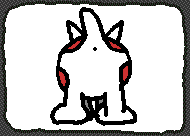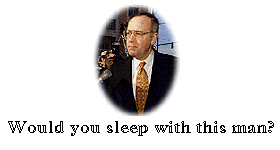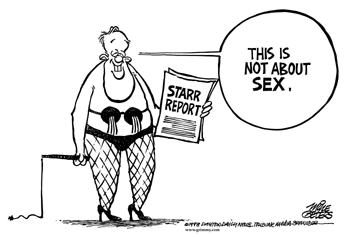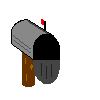How Do I Feel about Ken Starr?

Starr originally won his independent counsel post,
being appointed in 1994 by a panel under David Sentelle,
a federal judge strongly tied to rabid right-wing US
Senator Jesse Helms. He had numerous conflicts of
interest, including the fact that the prosecutor once
did pro bono legal work for Paula Jones,
the ex-Arkansas state employee who
(with aid from the conservative Rutherford Institute)
charged in court that then-Governor Clinton sexually
harassed her in 1991. Starr went on to link his
Lewinsky probe with the ongoing Jones case
(which was recently settled out of court).
Starr or his associates leaked "sleazy or illegal"
information about the Clinton inquest to the press,
and then he attacks the scandal-obsessed media for
spreading salacious and frequently unsubstantiated
rumors about the President right after news broke a
year ago of a Clinton-Lewinsky affair. Starr
intimidated and threatened witnesses.
 In 445 pages, the Referral mentions Whitewater, the failed land
deal which originated its investigation, twice. It never once mentions
other issues it has been investigating for years-matters
concerning the firing of employees of the White House
travel office and the controversy surrounding the FBI
files. By contrast, the issue of sex is mentioned more
than 500 times, in the most graphic, salacious and
gratuitous manner."
In 445 pages, the Referral mentions Whitewater, the failed land
deal which originated its investigation, twice. It never once mentions
other issues it has been investigating for years-matters
concerning the firing of employees of the White House
travel office and the controversy surrounding the FBI
files. By contrast, the issue of sex is mentioned more
than 500 times, in the most graphic, salacious and
gratuitous manner."


Did Ken Starr Break The LAW?....
Grand Jury Secrecy
Rules Following is the text of Rule 6(e) of the Federal Rules of Criminal
Procedure, which establishes rules for grand jury secrecy. Recording and
Disclosure of Proceedings. (1) Recording of Proceedings. All proceedings, except
when the grand jury is deliberating or voting, shall be recorded
stenographically or by an electronic recording device. An unintentional failure
of any recording to reproduce all or any portion of a proceeding shall not
affect the validity of the prosecution. The recording or reporter's notes or any
transcript prepared therefrom shall remain in the custody or control of the
attorney for the government unless otherwise ordered by the court in a
particular case. (2) General Rule of Secrecy. A grand juror, an interpreter, a
stenographer, an operator of a recording device, a typist who transcribes
recorded testimony, an attorney for the government,or any person to whom
disclosure is made under paragraph (3)(A)(ii) of this subdivision shall not
disclose matters occurring before the grand jury, except as otherwise provided
for in these rules. No obligation of secrecy may be imposed on any person except
in accordance with this rule. A knowing violation of Rule 6 may be punished as a
contempt of court. (3) Exceptions. (A) Disclosure otherwise prohibited by this
rule of matters occurring before the grand jury, other than its deliberations
and the vote of any grand juror, may be made to (i) an attorney for the
government for use in the performance of such attorney's duty; and (ii) such
government personnel (including personnel of a state or subdivision of a state)
as are deemed necessary by an attorney for the government to assist an attorney
for the government in the performance of such attorney's duty to enforce federal
criminal law. (B) Any person to whom matters are disclosed under subparagraph
(A)(ii) of this paragraph shall not utilize that grand jury material for any
purpose other than assisting the attorney for the government in the performance
of such attorney's duty to enforce federal criminal law. An attorney for the
government shall promptly provide the district court, before which was impaneled
the grand jury whose material has been so disclosed, with the names of the
persons to whom such disclosure has been made, and shall certify that the
attorney has advised such persons of their obligation of secrecy under this
rule. (C) Disclosure otherwise prohibited by this rule of matters occurring
before the grand jury may also be made - (i) when so directed by a court
preliminarily to or in connection with a judicial proceeding; (ii) when
permitted by a court at the request of the defendant, upon a showing that
grounds may exist for a motion to dismiss the indictment because of matters
occurring before the grand jury; (iii) when the disclosure is made by an
attorney for the government to another federal grand jury; or (iv) when
permitted by a court at the request of an attorney for the government, upon a
showing that such matters may disclose a violation of state criminal law, to an
appropriate official of a state or subdivision of a state for the purpose of
enforcing such law. If the court orders disclosure of matters occurring before
the grand jury, the disclosure shall be made in such manner, at such time, and
under such conditions as the court may direct. (D) A petition for disclosure
pursuant to subdivision (e)(3)(C)(i) shall be filed in the district where the
grand jury convened. Unless the hearing is ex parte, which it may be when the
petitioner is the government, the petitioner shall serve written notice of the
petition upon (i) the attorney for the government, (ii) the parties to the
judicial proceeding if disclosure is sought in connection with such a
proceeding, and (iii) such other persons as the court may direct. The court
shall afford those persons a reasonable opportunity to appear and be heard. (E)
If the judicial proceeding giving rise to the petition is in a federal district
court in another district, the court shall transfer the matter to that court
unless it can reasonably obtain sufficient knowledge of the proceeding to
determine whether disclosure is proper. The court shall order transmitted to the
court to which the matter is transferred the material sought to be disclosed, if
feasible, and a written evaluation of the need for continued grand jury secrecy.
The court to which the matter is transferred shall afford the aforementioned
persons a reasonable opportunity to appear and be heard. (4) Sealed Indictments.
The federal magistrate judge to whom an indictment is returned may direct that
the indictment be kept secret until the defendant is in custody or has been
released pending trial. Thereupon the clerk shall seal the indictment and no
person shall disclose the return of the indictment except when necessary for the
issuance and execution of a warrant or summons. (5) Closed Hearing. Subject to
any right to an open hearing in contempt proceedings, the court shall order a
hearing on matters affecting a grand jury proceeding to be closed to the extent
necessary to prevent disclosure of matters occurring before a grand jury. (6)
Sealed Records. Records, orders and subpoenas relating to grand jury proceedings
shall be kept under seal to the extent and for such time as is necessary to
prevent disclosure of matters occurring before a grand jury.
Go Back To Howie's Stupid GOP Quote page
Go to To Howie's Great Democratic Quote page
Midnightflyers Home Page

View My Guestbook
Sign My Guestbook
 Jim
Howington (Midnightflyer)
Jim
Howington (Midnightflyer)

Visit Counter
Powered by WebRing.